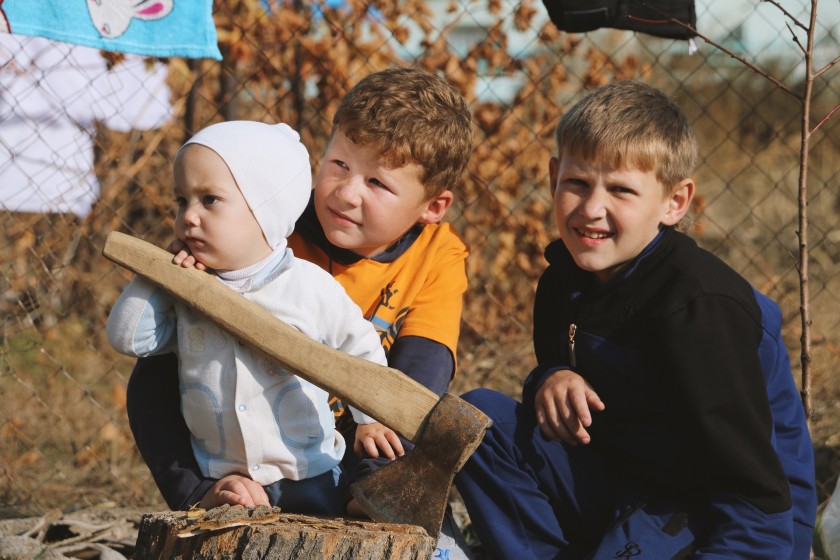
Father from Azerbaijan, Mother from Ukraine; Now Raising a Family in Armenia
Marine Martirosyan
The Karakhanovs live in a green wooden cottage, in Hayanist, a village in Armenia’s Ararat Province.
The cottage is separated from the street by a handcrafted fence. The soil is so neat as if it has been swept. There are chickens and rabbits in the right corner.
It’s mainly 29-year-old Tanya, from Ukraine, working the soil. She says she has planted garlic a couple of days ago, and her husband, 37-year-old Misha Karakhanov, planted new trees - peaches, apricots, apples. Tanya likes farming, and she says it’s also beneficial for the family.
Tanya’s neatness is apparent from the boots at the doorway. She says it doesn’t matter what conditions a person lives in: the house and the backyard should always be clean.
For example, she remembers that when they moved to the cottage, they changed the wallpaper.
"My children are accustomed to living in a clean environment, at least to see the beauty," Tanya says.
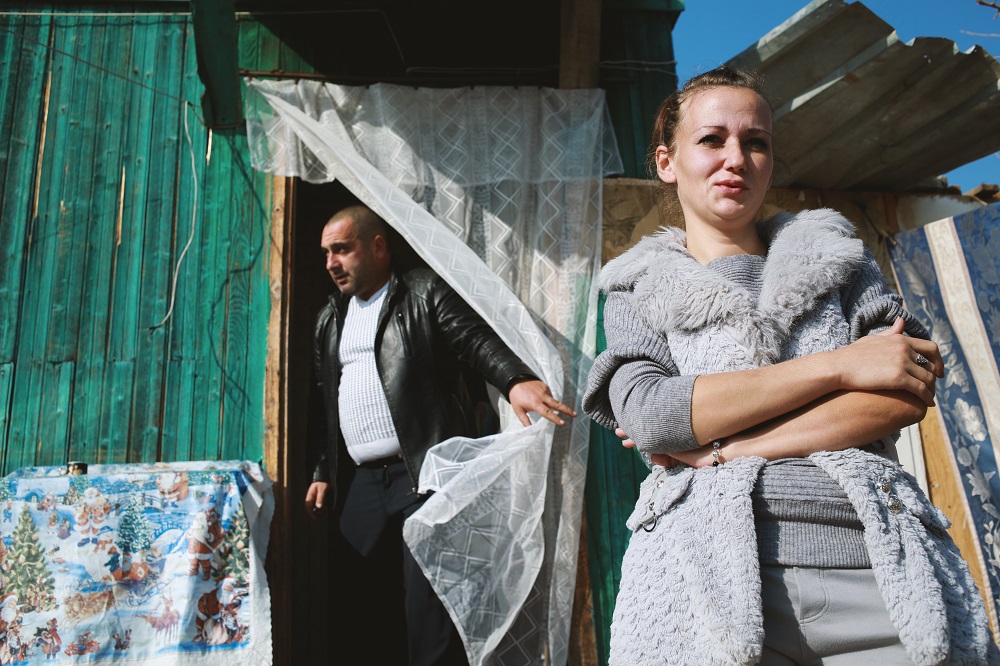
There is no water or electricity in the cottage. Misha shows us the neighbor's house from where he brought the electricity wires. It’s not easy for Tanya to carry water from the neighbors every day - for cooking, washing and bathing. They need around 180,000 drams for installing water.
Before moving to this cottage, they rented the opposite house for more than two years. When the landlord gave them one and a half months to find a new place, one of the neighbors was kind enough to sell them the wooden cottage with the yard. Misha took a loan that they are still paying off.
Now, their main task is installing water and electricity. Misha says he doesn’t like complaining. He believes that one day everything will be fine in their lives.
"Every morning, when I wake up, I thank God that my children are not hungry. It's a parent's duty to do everything for children, even if you have to bend over backwards," Misha says. He has heart issues, but he doesn’t want to go to the hospital, since he’s afraid of getting a poor diagnosis.
Misha's family is from Khanlar, a town in Azerbaijan. They moved to Yerevan in 1989. They lived in their aunt's house until they got refugee housing.
He had all kinds of jobs after his military service - a security guard, a driver, a greenhouse worker.
"I worked in greenhouses for three years, I was cleaning, I was carrying soil, manure, doing all kinds of works. Most importantly, I wasn’t and I haven’t been ashamed until now, unlike people who say “Oh, this is not for me”. They don’t understand that if you don’t work, your family will starve," says Misha.
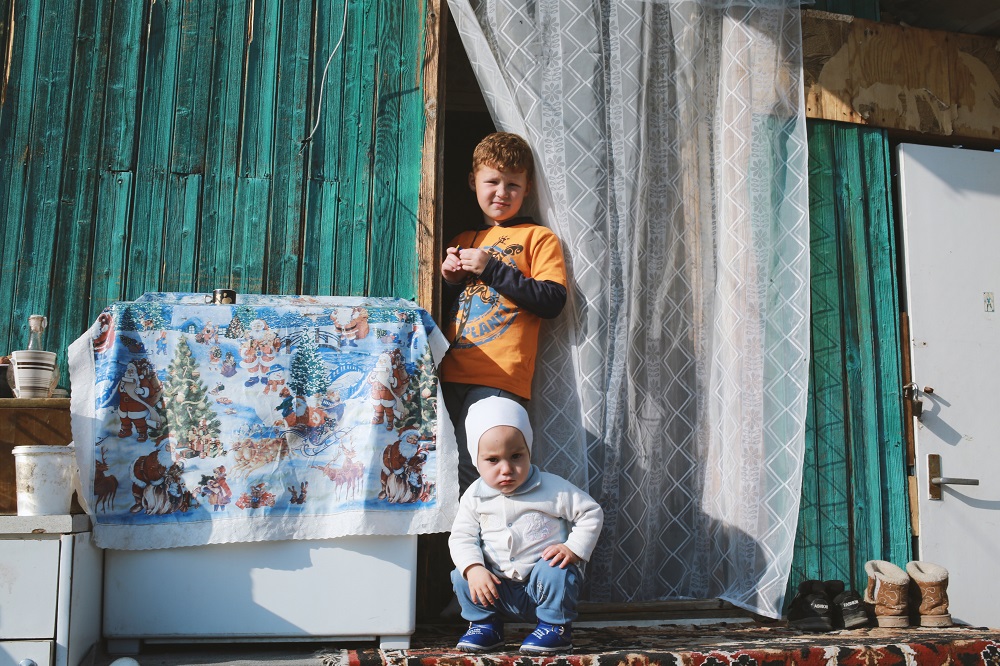
Now, he installs internet cables. He says that no one at the job knows how he and his family live. A leather jacket and a cheerful look may be deceptive.
"Misha doesn’t like buying clothes and shoes for himself, he says we’d better buy food and clothes for children," Tanya says.
Tanya is from western Ukraine. They got acquainted through the internet. Misha recalls the date- April 13,2013.
Tanya has two sons from her first marriage - 10-year-old Nikita and 7-year-old Daniel. "Misha treats them like his own children," she says.
We talk inside the cottage. The sun falls on 16-month-old Rafayel's eyes, sleeping on a sofa. He wakes up.
Rafayel is Tanya’s and Misha’s son, and they expect their fourth child in a few months. "A few days ago, a bee bit my hand; it swelled up. Misha took me to the hospital and we found out that we’re expecting a girl," says Tanya.
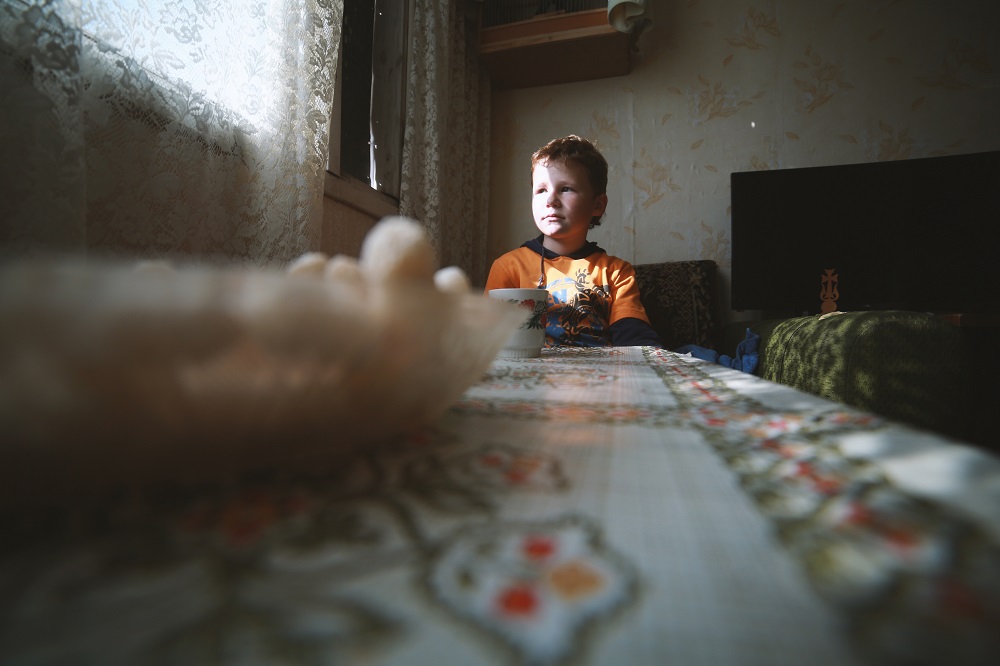
Tanya’s parents were against her decision to move to Armenia, they offered to leave the children with them, but she declined. "My children are the essence of my life. Whatever happens, they should be with me," she says.
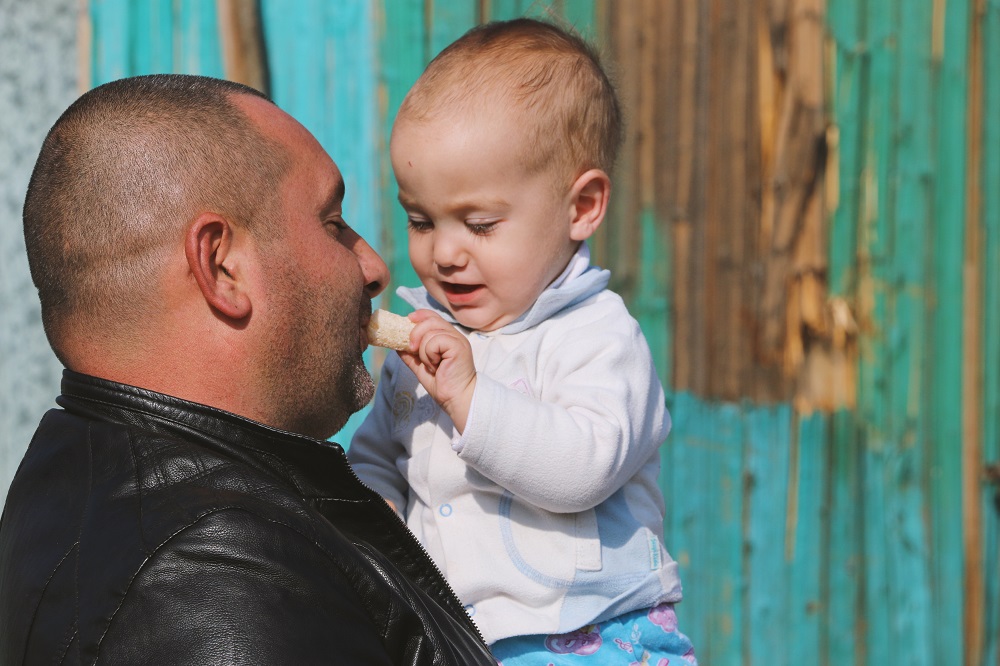
Misha initially didn’t tell his parents about his Ukrainian wife. He was afraid that they wouldn’t accept her. But Misha’s mother warmly welcomed her when she found out. Tanya says her mother-in-law is a wonderful person and has become a mother to her.
In the first six months, Nikita and Daniel couldn’t adjust. They wanted to return to Ukraine. But they started to get used to their new environs. They now attend a Russian school in Etchmiadzin.
Tanya says it was difficult in the first year: they had many language problems, switching from Ukrainian to Russian wasn’t easy. Daniel still has an issue with remembering what he reads.
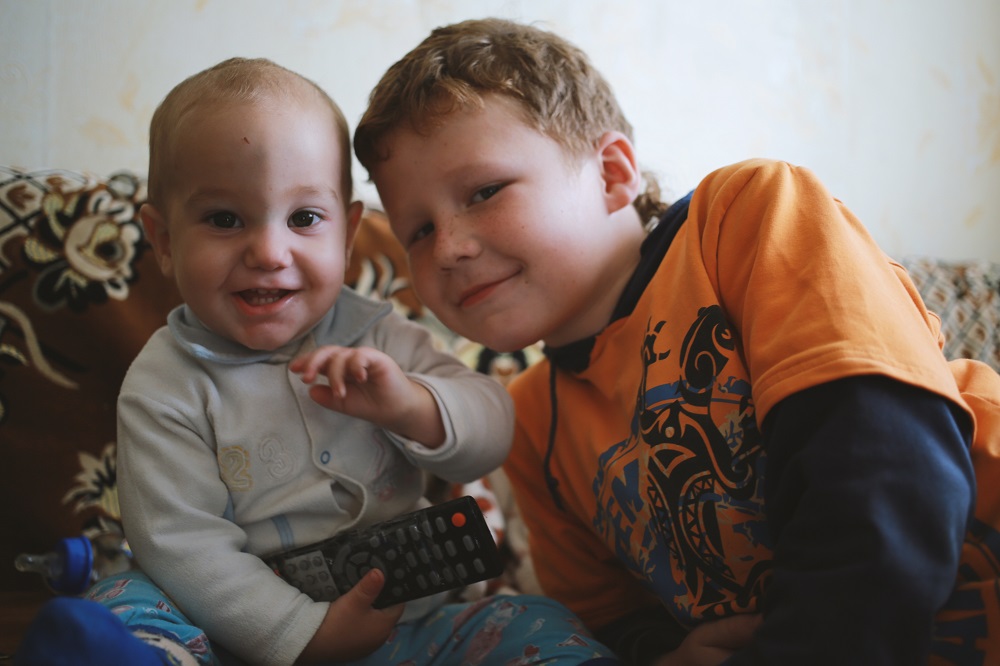
Daniel's eyesight is getting worse by the day. He was taken to an eye hospital in Yerevan, where the doctors said he may lose sight in the one eye. The medicine they buy for Daniel costs 25,000 drams a month.
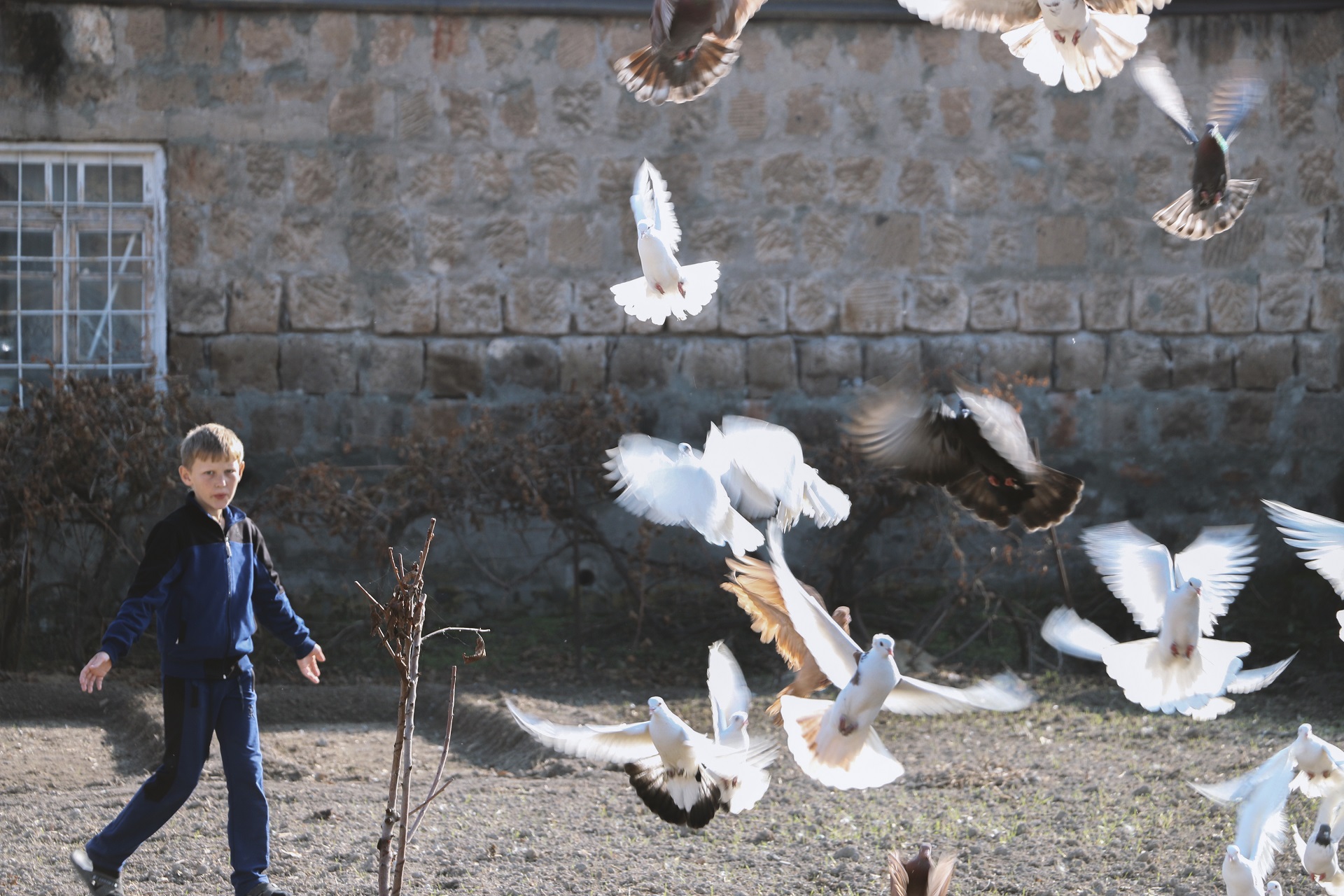
"Talking about our problems is painful for me. Misha does everything for the family. He doesn’t want to visit a doctor, because the doctors would find a bunch of ailments. He’s reserved. He works from morning till night, and then comes home and helps here. I save money. We try not to spend a lot. Besides, my children are not fastidious,” says Tanya, closing her eyes and crying. She constantly wipes her eyes, but the tears flow again quickly.
"Here in Armenia, people are really friendly. I don’t know what the children will decide when they grow up, but I will stay on this land. My soul is calm here," says Tanya. She has double citizenship.
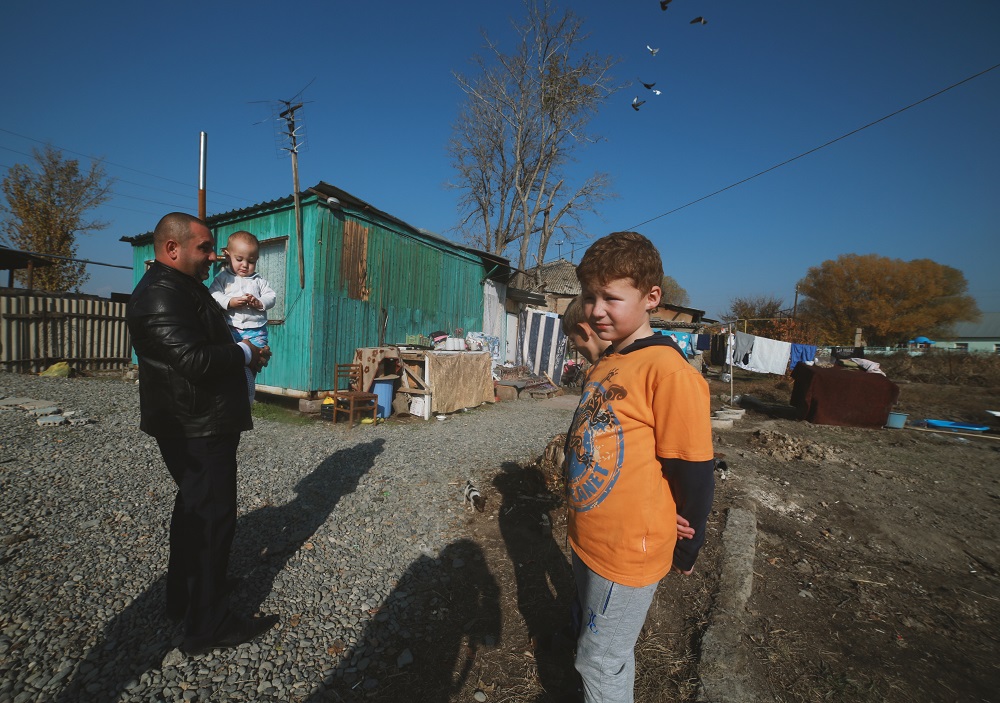
Nikita understands and speaks Armenian; Daniel - only Russian. Tanya says she doesn’t understand Armenian perfectly either. If she hears a familiar word, she tries to guess the meaning.
Nikita dreams of becoming a policeman. He wants to get a book as a New Year’s gift. A thick one, he adds. Daniel quickly lists his dreams. He wants to become an artist, policeman, singer and fireman.
Nikita helps his parents with the farming. He shows us where they’ve recently planted flowers. The ten-year old has decided to return to Ukraine after graduating from school. He wants to see his grandparents and old classmates, and take his Armenian friends with him if they want to. Daniel hasn’t decided what to do yet.
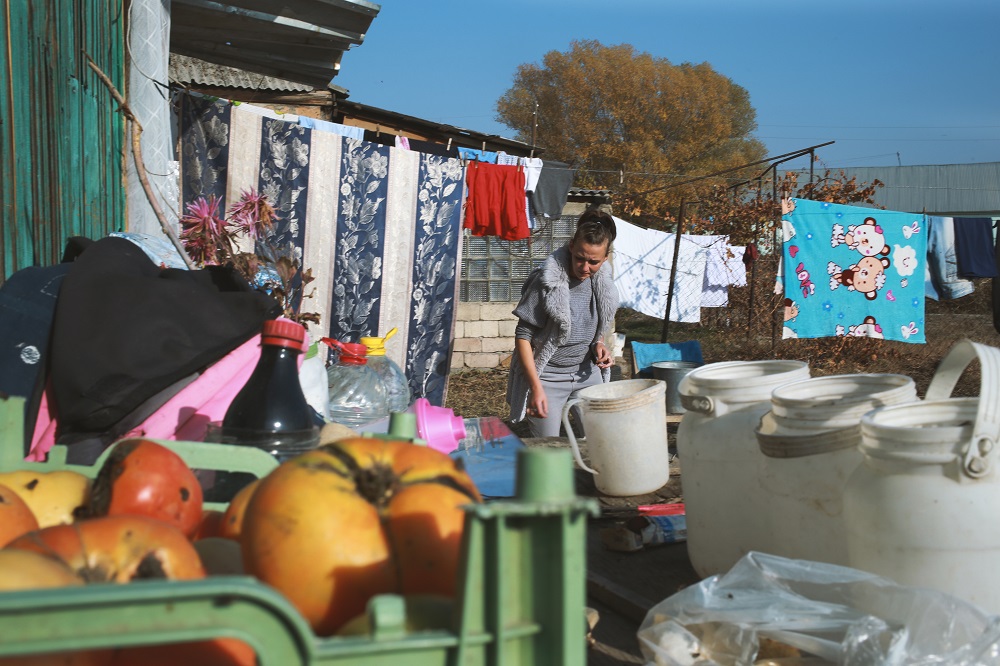
It’s sunny inside the cottage. We drink coffee. Tanya says that after coming to Armenia she’s become interested in Armenian cuisine. Neighbors have helped a lot.
Misha says she cooks delicious meals - both Armenian and Ukrainian. "For example, have you ever eaten buckwheat soup?" Misha asks. Tanya's best known for her Ukrainian pork sausage.
Misha says they used to own a pig while living in the opposite house, but they slaughtered it last November. They gave some of the meat to the parents and neighbors. Tanya refrigerated the rest, and the kids feasted the whole winter.
We don’t speak. Children play outside. Their voices reach us inside. Misha asks: "For example, do you believe in fairy tales? I do, I believe that fairy tales are taken from reality."
Photos: Saro Baghdasaryan
 Videos
Videos Photos
Photos




Comments (2)
Write a comment